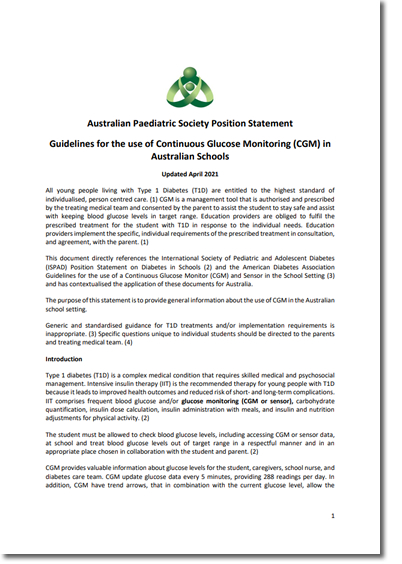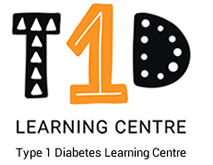Diabetes at School
ISPAD Position Statement on Type 1 Diabetes in Schools - Recommended Levels of School Staff Education and Training
To most effectively manage students with Type 1 Diabetes at school, ISPAD Position Statement on Type 1 Diabetes in Schools directs that schools are responsible for ensuring that their personnel are adequately educated and trained in the application of prescribed treatment for the individual student. (ref ISPAD PS 7.1)
The content of the training is the responsibility of the medical team and parent and may be assisted by on-line courses (such as these t1d modules). Training should be executed by people with the appropriate understanding of the student's individual needs and skill set. Training must have informed parental consent to administer the prescribed medical treatment and manage the complex care for their child. (ref ISPAD PS 7.3)
Third parties who may provide generic Type 1 education or have some knowledge of Type 1 but bear no responsibility for clinical outcomes must nor provide medical advice on any aspect pf the medical management of the child with Type 1. ( ref ISPAD PS 7.6)
ISPAD recommends the following Levels of School Staff Education and Training; (ref ISPAD PS 7.8):
- Level 1 - All school personnel should be educated about basic medical understanding of Type 1 (including recognition and urgency of treatment for low blood glucose) and the effect of Type 1 on the student and the entire family including the social, economic and emotional impact of living with Type 1.
- Level 2 – Those school personnel most responsible for day to day management of the child with Type 1 (teachers, relief teachers and special subject teachers including PE) should also be trained to
- recognize low blood glucose symptoms and signs
- initiate treatment for high and low blood glucose levels according to the student's Diabetes Management Plan
- know and understand when and whom to call for assistance, including emergency responders, parents and medical team.
- Level 3 – Those school personnel with parental authorization or seeking parental authorization through training and informed parental consent to administer insulin require a higher level of training on:
- insulin administration
- insulin dose calculation and adjustments
- the legal aspects of insulin administration
- insulin delivery devices including insulin pumps
- glucagon administration where prescribed.
Guidelines for the use of Continuous Glucose Monitoring (CGM) in Australian Schools
Australian Paediatric Society Position Statement
April 2021
Download here: CGM in schools - APS Position Statement

